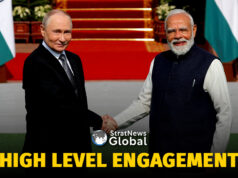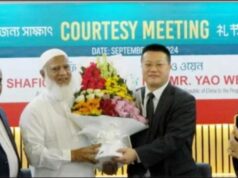NEW DELHI: Little under a fortnight ago, India, Saudi Arabia, United Arab Emirates, Jordan, Israel and the European Union inked an agreement for an economic corridor connecting India with Europe through the Middle East. This deal co-authored by the United States and India was clinched on the sidelines of the G20 summit meeting in New Delhi.
It is an audacious idea built on the new mantra of diplomacy: Friendshoring. The economic corridor proposes to create a supply chain for goods, green energy and services—in which every country will be a stakeholder.
Once up and running it has the potential to be a force multiplier in a region, which coincidentally, excluding Europe, accounts for the fastest growing economies in the world. In many ways it is retracing the historic trade routes connecting India to Europe.
To unpack the implications, we spoke to Prof. Michaël Tanchum, Non-resident Fellow, Middle East Institute.




